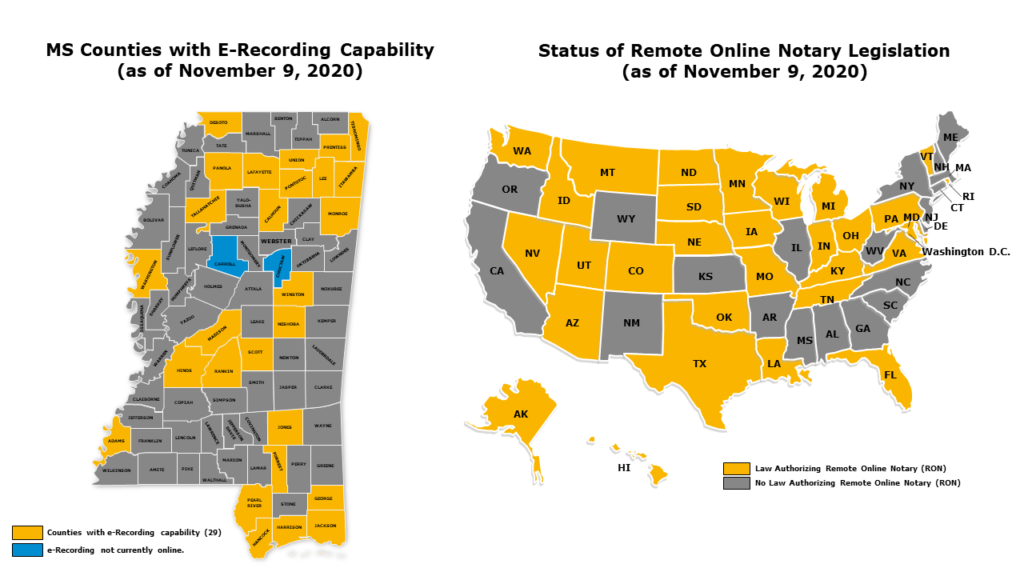ALTA Says Use of RON Increased Substantially in 2020
A survey conducted by the American Land Title Association of major vendors working in the Remote Online Notary (RON) space indicated use of RON has increased 547% during 2020 when compared to 2019. This increase can be attributed to heightened demand for RON during the pandemic, coupled with the fact that 29 states have now passed permanent laws authorizing the use of RON.
Governor Reeves issued Executive Order No. 1467 temporarily authorizing both “remote ink-signed notarization” and “remote online notarization” for the duration of this emergency. This temporary authorization will expire 14-days after the state of emergency ends. To learn more, read Executive Order No. 1467.
The below graphic shows those states that have adopted RON legislation, and those 29 Mississippi Counties that currently have e-recording capability.

According to ALTA, RON is being utilized most extensively in Florida, Texas, and Virginia. ALTA says use of this technology is also trending up significantly in Midwestern states. A decade ago, Virginia became the first state to enact a RON law. Texas approved RON legislation in 2017. Adoption of RON in Florida has been rapid since the state passed legislation in 2019.
Notarizations are used extensively in real estate transactions on documents like deeds, mortgages, lien releases, and frequently for home equity loans. Many RON providers focus their business exclusively in this space. While RON provides homebuyers a convenient experience and can be used to execute a fully digital mortgage, this technology is also utilized for affidavits, powers of attorney, living trusts and advanced health care directives.
Firms offering remote notarizations to a broader base of customers indicate 75% of their business is non-real estate related. Being able to remotely notarize documents during the pandemic—whether real estate or not—has been critical to keeping people safe and promoting social distancing.

